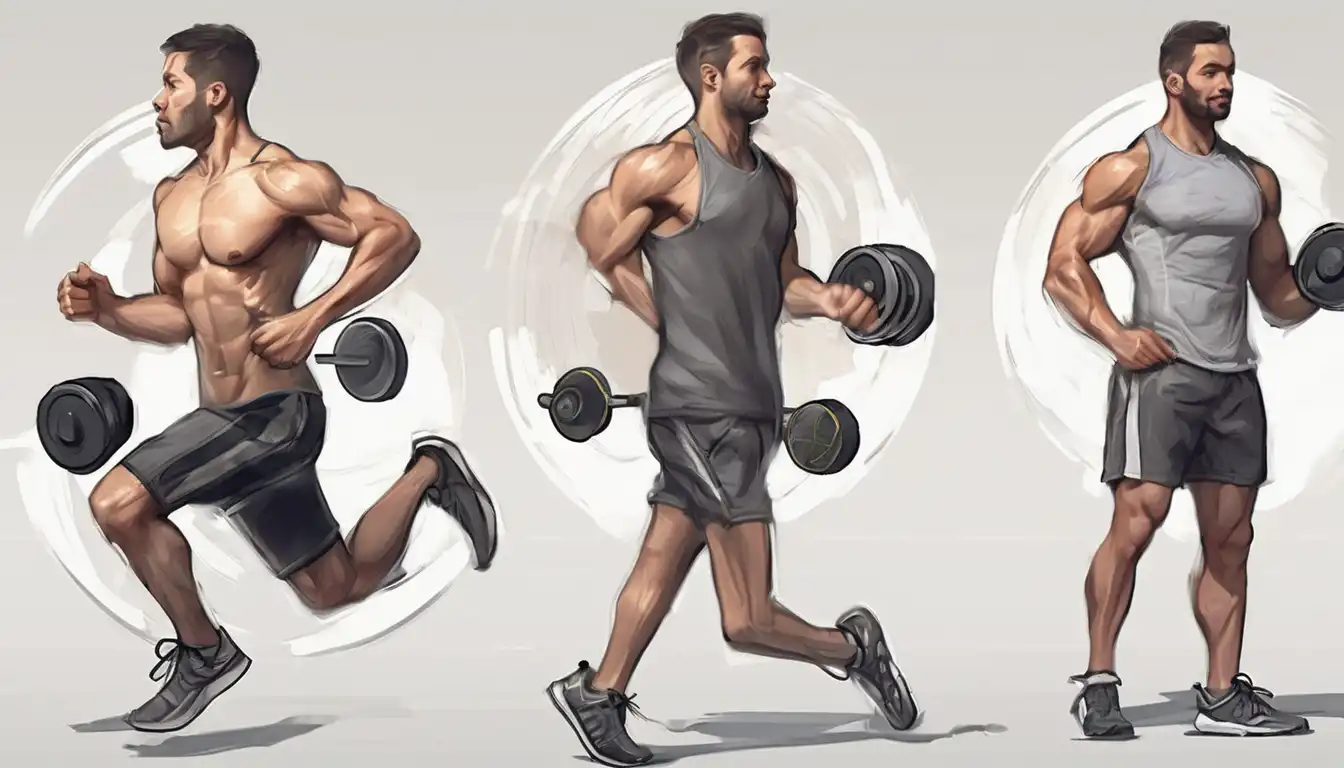Getting Started with Your Fitness Journey
Embarking on a fitness journey can feel overwhelming, but with the right approach, anyone can build a sustainable routine that delivers real results. Whether you're looking to lose weight, build strength, or simply improve your overall health, this comprehensive guide will walk you through every step of creating a fitness plan that works for you.
Why Starting a Fitness Routine Matters
Regular exercise offers numerous benefits beyond physical appearance. Consistent physical activity can boost your energy levels, improve mental health, reduce stress, and lower your risk of chronic diseases. According to the CDC, adults need at least 150 minutes of moderate-intensity aerobic activity per week, along with muscle-strengthening activities on two or more days.
Assessing Your Current Fitness Level
Before diving into any workout program, it's crucial to understand your starting point. Take an honest assessment of your current fitness level by considering these factors:
- Your current activity level throughout the day
- Any physical limitations or health concerns
- Your exercise history and experience
- Your personal goals and motivations
This self-assessment will help you create realistic expectations and avoid injury by starting at an appropriate intensity level.
Setting SMART Fitness Goals
Effective goal-setting is the foundation of any successful fitness routine. Use the SMART framework to create goals that are Specific, Measurable, Achievable, Relevant, and Time-bound. Instead of vague goals like "get fit," try specific targets such as:
- Walk 10,000 steps daily for the next month
- Attend three yoga classes per week
- Increase push-up capacity from 5 to 15 in six weeks
- Lose 5 pounds in the next two months
Choosing the Right Type of Exercise
A balanced fitness routine should include four main components: cardiovascular exercise, strength training, flexibility work, and balance exercises. Here's how to incorporate each element:
Cardiovascular Exercise
Cardio activities get your heart rate up and improve cardiovascular health. Beginner-friendly options include:
- Brisk walking or hiking
- Cycling on flat terrain
- Swimming or water aerobics
- Dancing or low-impact aerobics classes
Strength Training
Building muscle helps boost metabolism and prevent injury. Start with bodyweight exercises before progressing to weights:
- Bodyweight squats and lunges
- Push-ups (modified if needed)
- Planks and bird-dogs
- Resistance band exercises
Flexibility and Balance
Don't neglect stretching and balance work, which become increasingly important as we age. Consider incorporating yoga or simple stretching routines into your schedule.
Creating Your Weekly Workout Schedule
Consistency is more important than intensity when starting out. Aim for 3-4 workout sessions per week, allowing for rest days in between. A sample beginner schedule might look like:
- Monday: 30-minute brisk walk + bodyweight exercises
- Tuesday: Rest or active recovery (light stretching)
- Wednesday: 25-minute cycling + core work
- Thursday: Rest
- Friday: Full-body strength routine
- Weekend: Active fun (hiking, swimming, or sports)
Essential Equipment for Beginners
You don't need an expensive gym membership to get started. Basic equipment that can enhance your home workouts includes:
- Comfortable athletic shoes with proper support
- Exercise mat for floor work
- Set of resistance bands in varying tensions
- Water bottle to stay hydrated
- Workout clothes that allow freedom of movement
Proper Form and Technique
Learning correct form is crucial for preventing injuries and maximizing results. Consider these tips:
- Start with lighter weights or bodyweight only
- Use mirrors or record yourself to check form
- Focus on controlled movements rather than speed
- Don't hesitate to ask for help from fitness professionals
If you're unsure about proper technique, consider working with a personal trainer for a few sessions or watching reputable online tutorials.
Nutrition and Hydration Basics
Exercise alone isn't enough—proper nutrition fuels your workouts and recovery. Key nutritional considerations include:
- Eating balanced meals with protein, carbohydrates, and healthy fats
- Staying hydrated before, during, and after exercise
- Timing meals appropriately around workouts
- Listening to your body's hunger and fullness cues
Tracking Your Progress
Monitoring your improvements helps maintain motivation. Consider tracking:
- Workout frequency and duration
- Strength improvements (weights lifted, repetitions)
- Endurance gains (distance covered, time sustained)
- How you feel mentally and emotionally
- Body measurements (optional, if relevant to your goals)
Common Beginner Mistakes to Avoid
Many newcomers make these errors that can derail their progress:
- Starting too aggressively and risking injury
- Comparing themselves to others
- Skipping warm-ups and cool-downs
- Neglecting rest and recovery days
- Expecting immediate results
Staying Motivated Long-Term
Maintaining enthusiasm can be challenging. These strategies can help:
- Find activities you genuinely enjoy
- Work out with a friend for accountability
- Mix up your routine to prevent boredom
- Celebrate small victories along the way
- Remember your "why"—the reasons you started
When to Seek Professional Guidance
While many people can start a fitness routine independently, certain situations warrant professional input:
- If you have pre-existing health conditions
- When experiencing persistent pain during exercise
- If you're unsure about proper form
- When you've plateaued and need new challenges
Building a Sustainable Fitness Lifestyle
The ultimate goal isn't a temporary fitness kick—it's integrating movement into your life permanently. View exercise not as a chore but as an investment in your long-term health and wellbeing. Remember that consistency trumps perfection, and every small effort contributes to your overall progress.
Starting a fitness routine is one of the most rewarding decisions you can make for your health. By following these beginner-friendly guidelines, you'll build a strong foundation for a lifetime of fitness success. The journey may have challenges, but the benefits to your physical and mental health make every step worthwhile.
